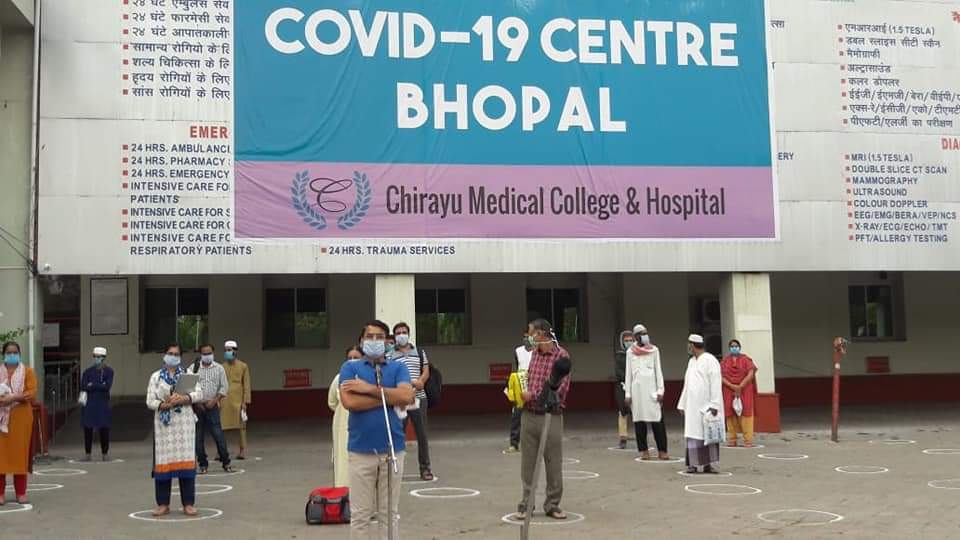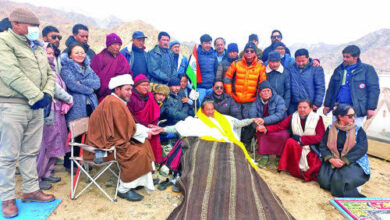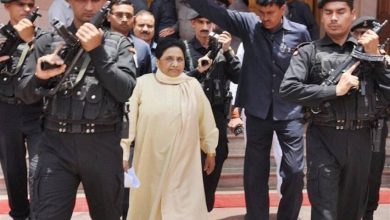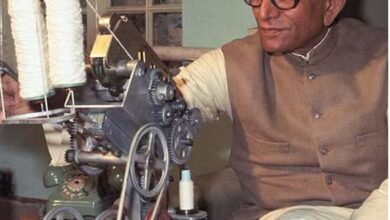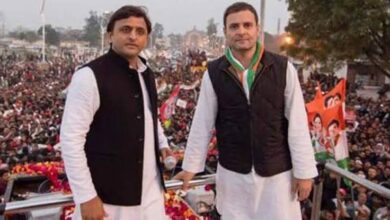WE NEED MORE HOSPITALS, NOT TEMPLES OR MOSQUES
India needs a better health care infrastructure
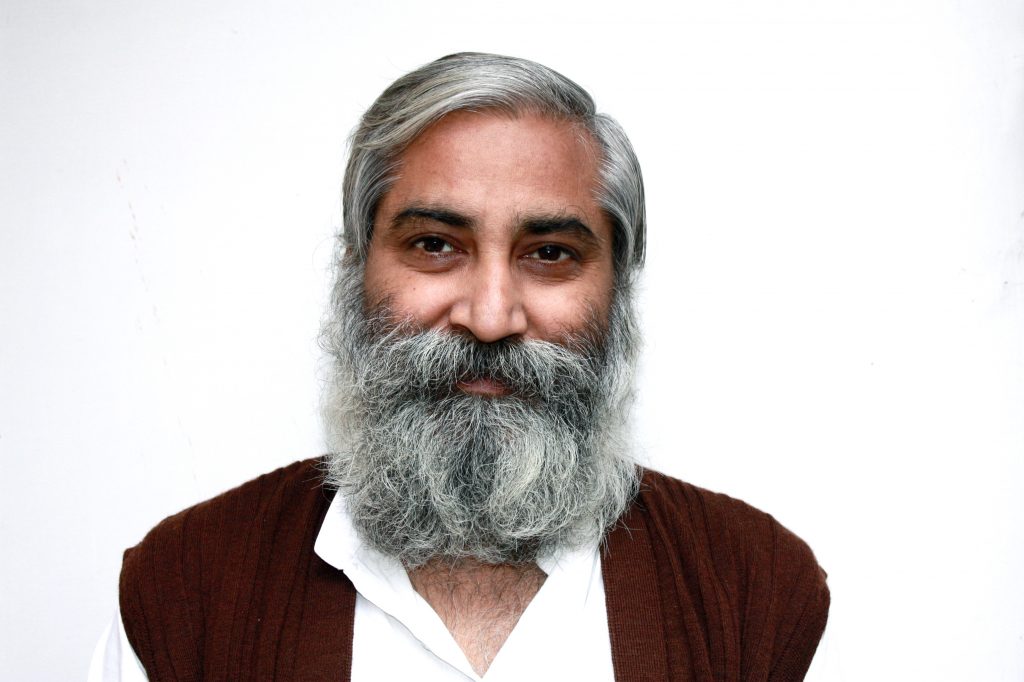
As India runs a drive for vaccination against Covid the nature reminds us about our diminutiveness by an accompanying surge in Covid cases. In 2020, India had reported the highest number of 98,795 cases in 24 hours on 17 September 2020 but now the new unfortunate peak in April 2021 is past the 3 lakhs mark. We pointed out even last year when the government was busy proclaiming its adept handling of the spread of disease, that government health infrastructure was inadequate while the private sector had just abdicated its responsibility. Covid patients had to suffer because of this and non-Covid patients had to suffer because they were not a priority even though they were facing life-threatening situations. Now the situation is even worse. The health care system has collapsed. The Law Minister in Uttar Pradesh Brajesh Pathak has written a scathing letter to the responsible bureaucrat about the abysmal state of response of health care system to Covid emergency. When an influential minister of the ruling party feels helpless one can imagine the situation of ordinary mortals. In spite of the government policy of advising people home isolation in case they test positive for Covid, currently there is scramble for beds. People are dying moving from one hospital to another unable to find a bed.
The Prime Minister trumpeted a so called Atmanirbhar Bharat abhiyan taking pride in the domestically produced Covishield vaccine based on Oxford-AstraZeneca research only to give in to the demand to import Russian vaccine when push came to shove. The Bhartiya Janata Party governments seem to continuously function in an event management mode. Yogi Adityanath, who got himself accolades for his handling the coronavirus crisis, has now himself tested Covid positive pointing to failure at three levels – the ineffectiveness of the much touted vaccination programme, which has miserably failed to vaccinate sufficient section of population, as he got himself inoculated days before, his ‘efficient’ health care system about which he once claimed that Kerala should learn from and maintenance of general vigil and observing precautions against the disease. It is believed that only if two thirds of a population is inoculated within a short duration of 8-10 months then herd immunity kicks in, however in the case of India we’ve hardly been able to vaccinate 1.2 crores of our population so far with both doses, which is less than hundredth of what we need to do. And more importantly, speed of vaccination is appalling – India’s vaccination began on 16 January 2021, and it took us 3 months to give both doses to 1.2 crores. Time window is fast closing if we want to leverage public health benefits of herd immunity or save lives or reduce hospitalization needs by population level vaccination programme.
The government is woefully short of beds to accommodate all patients and is on a spree to acquire the capacity of private hospitals. We have always advocated for nationalization of health care system. The logic for it cannot be understood any better than in times of Covid crisis. The U.P. government has ignored the 2018 Allahabad High Court’s Justice Sudhir Agarwal and Justice Ajeet Kumar order that all receiving salaries from the government and their family members should get themselves treated at government health care facilities. Implementation of this order alone will make the government health care robust. However, even in the time of Covid crisis the government is guilty of promoting private interests. The Covaxin, the other vaccine being used in India so far, important initial part of research was done by National Institute of Virology which is a part of Indian Council of Medical Research and handed over to Bharat Biotech for further development. The vaccine has been rolled out without appropriate trial results, just so that we could claim to be ahead in the race to produce and export.
A pertinent question is when the farmers are sitting on a protest for over three months demanding a legal right of Minimum Support Price of their produce, which is one and half times their cost of production, why have the vaccine manufacturers been allowed to mint unethical profit in the time of national calamity? It is important to remember that AstraZeneca/Oxford had promised not to earn any profit from the vaccine. Then why is its manufacturer selling vaccine to the government at variable prices? Covishield was bought by the government of India earlier at Rs 210 per dose, and then price was reduced to Rs 150. Ironically, the vaccine which is entirely produced in India, Covaxin, costs even more to the government: Rs 295 per dose. Covishield manufacturer wanted to sell it at Rs 1000 per dose in open market. First our government put a maximum cap of Rs 250 per dose but now it has arbitrarily allowed a raise in price to Rs. 400 per dose for government and Rs. 600 per dose for private hospitals. The question is, who determines the cost price, and who should be held to account for minting profits even when people reel under severe economic and humanitarian crises? Is this what Narendra Modi meant by ‘opportunity in crisis?’
Dr Michael Ryan, who is the Executive Director of the World Health Organization (WHO) Health Emergencies Programme, who also leads the team responsible for international containment and treatment of Covid-19, said last month that “We have set the seeds of our own destruction by not having universal access to high quality affordable healthcare as a minimum basic human right for every person on this planet. And we are paying a huge price now in a pandemic for the lack of that basic human right. The seeds of our pandemic destruction have been set in how we have developed and invested in healthcare- which is not very well and not very equitable.”
That India needs a better health care infrastructure couldn’t have been more obvious earlier. We need more public hospitals to handle a crisis like coronavirus pandemic. If BJP cares about the people rather than the politics espoused by Rashtriya Swayamsewak Sangh it should take decision to divert major part of Rs. 3,000 crores collected for building Ram temple in Ayodhya for building hospitals. Even the existing religious infrastructure should be taken over by government and converted into hospitals. If Gurudwaras can serve human beings by running a very efficient langar system, why can’t other religious institutions get involved in human service, rather than restricting themselves to worship of some abstract forms of God. In fact, government policy should make it mandatory for religious institutions to be involved with some form of human service in providing food, health care, education or undertaking some welfare activity.
- By Bobby Ramakant and Sandeep Pandey
Contact Nos.: 9839073355, 0522 2355978
e-mail ids: bobbyramakant@yahoo.com, ashaashram@yahoo.com
Follow them on Twitter @bobbyramakant, @Sandeep4Justice
Note: Bobby Ramakant and Sandeep Pandey are with Socialist Party (India).

